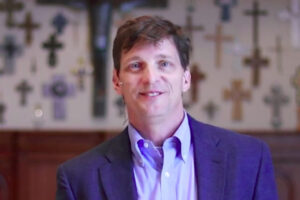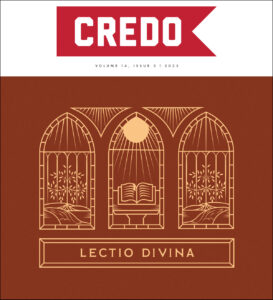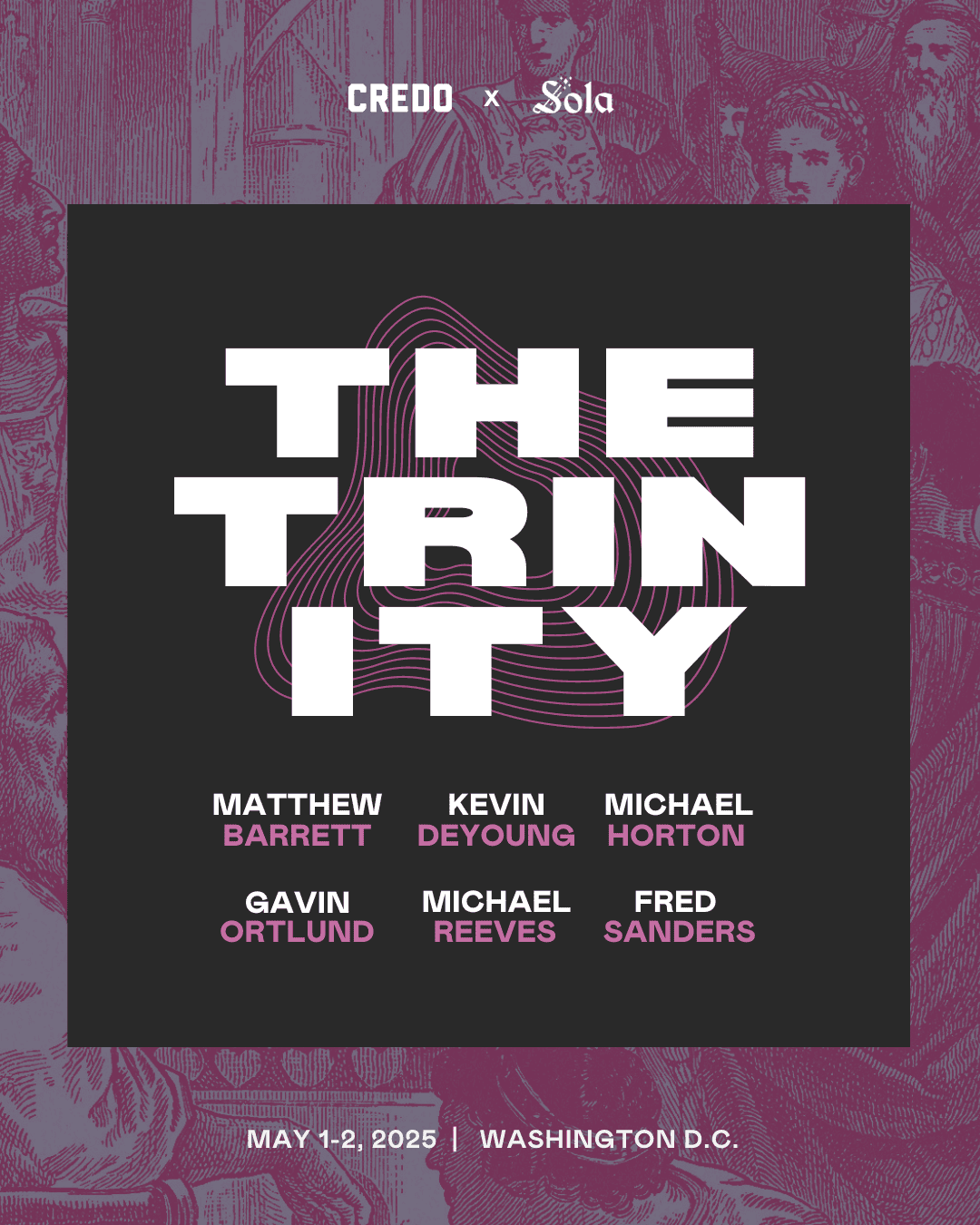I used to be a good listener. Then I became a Senior Pastor and Senior Pastors talk. On Sundays we read Scripture from elevated platforms and, with the eyes and ears of our parishioners fixed on us, we proclaim eternal truths, holy mysteries, and the greatness of God’s grace and call for believers’ lives. That’s just the start. During the week, we lead ministries and meetings, we officiate funerals, weddings, and other events, we pray, we preach more, we give pastoral counsel, we guide staffs, we give opinions (on everything!), we teach classes, lead small groups, and instruct confirmands. In other words, pastors have answers, solutions, and sought-after spiritual acumen. Pastors, then, become creatures of ubiquitous utterance simply because we have ventured into the pulpit on Sundays.
I’m not the only one who has noticed this trend. A friend recently shared insight learned from his mentor. “We’re taught [in seminary] how to talk. None of us had a class in how to shut up.” Dietrich Bonhoeffer incriminates us all when he writes, “Many people are looking for an ear that will listen. They do not find it among Christians, because these Christians are talking where they should be listening. But he who can no longer listen to his brother will soon be no longer listening to God either; he will be doing nothing but prattle in the presence of God too.” Our current context of so-called influencers and social media platforming seems only to aggravate our tendencies.
Much of the preacher’s talking is a good thing. After all, we proclaim the comfort and hope found in Christ. It is true, sometimes we talk too much, if not too long on Sundays (and in journal articles). Accustomed to people looking to us for answers, we frequently impart our thoughts, ideas, and insights without giving meaningful consideration to what others are actually saying (read thinking and feeling). In other words, we too easily, in too many situations, assume the role of expert and we begin to prattle.
The Antidote to Prattling
All this is to say, I used to be a good listener but then I became a Senior Pastor and I started talking. Bonhoeffer was right, though, all this talking can be problematic and it can be an incumbrance for the pulpit and the preacher’s wider ministry. The antidote for this pastoral predicament is grace. Cooperatively, the spiritual disciplines provide opportunity for the preacher to live into that grace. Of those habits, Lectio Divina is particularly helpful for the case of the prattling preacher.
The practice of Lectio Divina, or Divine Reading, is aptly named because we read the Divine Word of God. However, Lectio is very much an exercise in listening. The Word we read invites us to listen. “Hear, O Israel,” was the invitation of YHWH to the Israelites (Dt 6:4), and in the New Testament James tells us to be quick to listen and slow to speak (Jas 1:19). The expected fruit of listening is a loving response (Dt 6:55ff; Jas 1:22). What we hear leads to change.
Indeed, the Word of God itself is revelatory and transformative. Hebrews 4:12-13 tells us, “the word of God is living and active. Sharper than any double-edged sword, it penetrates even to dividing soul and spirit, joints and marrow; it judges the thoughts and attitudes of the heart.” Similarly instructive is the Lord’s gift of a scroll to Ezekiel with words to speak to God’s people. Before Ezekiel proclaims publicly the word of God, he will first eat the words of lament, mourning, and woe. Only having tasted and gotten his fill, making it his own, will he make public proclamation (Ez 2-3). The very nature and purpose of Scripture, then, commends the practice of Lectio and is good remedy for the preacher who has become too accustomed to hearing his own voice.
Lectio Divina, Sermon Writing, and Exegesis
Hans Boersma in Pierced by Love claims that sermon preparation is an “extended type of lectio divina.” One hopes he is correct. Lectio does, or should, become a natural part of the exegetical process, but, as one who preaches regularly, I understand the temptation to speak to the text rather than allowing the text to speak first to me. Boersma’s assessment that Lectio can be a painful process highlights this temptation. Lectio can be personally challenging, revealing to us our rebellious nature and calling us to repentance. (Who wants to submit week in and week out to an examination of the heart?) Lectio can also be a painfully slow process, especially if one engages the practice in an intentional and disciplined way. (Who has the time?) Preachers promoting the latest program or self-help therapy, already stretched by demanding schedules, might question the practical value of laborious spiritual disciplines. Indeed, Lectio is no easy task. In Lectio, the preacher returns to the source of his preaching, feasting on the Word of God so to properly set before his congregation a banquet worth attending. Share on X
Still, to handle the truth in love (not to mention all those other obligations throughout the week), the preacher must cultivate a listening spirit, ingesting and digesting the Word through reading, reflecting, praying, and resting. In Lectio, the preacher returns to the source of his preaching, feasting on the Word of God so to properly set before his congregation a banquet worth attending. We might think of Lectio as a necessary school of “shut-up and listen.” Less crudely, it is this very form of scriptural engagement that is life giving for the preacher and, ultimately, the parishioner.
To be sure, preachers are rightly taught to exegete via various critical methods and theological hermeneutics. Exegesis does not end, however, with a careful study of the text. We also must exegete the culture and the congregation. These are well-worn pathways to the pulpit, but Lectio invites the preacher to exegete himself. We might ask questions like, “What’s beneath the image I project in my ministry? What bugs me and what excites me about life and faith? What biases inform my reading? What joys and sorrows, personal wounds and wins, inform and drive my understanding of the text?” Akin to the benefit of the Examen Prayer, the preacher needs Lectio as a part of his surrender to the text not only for an accurate proclamation of the Word but also for one born out of a personal transformation from having encountered God through his Word. Preaching can be deeply personal or it can be deeply derivative. That is a sermon can be born in the depths of one’s being or it can be mere regurgitation of a formula. Practicing the discipline of Lectio helps ensure the preacher’s integrity before God and those gathered to receive.
Reading as Transformation
And that transformation is the key. Christ formed in us (Gal 4:19). As a preacher, will I allow the Word to speak to me, to my fragile, weary, and rebellious heart? Will I allow the Word to challenge and encourage me? Will I allow it to sustain and change me? The alternative, at best, is prattle. At worst, it is to play the role of a charlatan. Personal transformation through the Word is necessary because the sermons we preach from the pulpit are not the only sermons we preachers preach. The words we speak will not be the only thing our congregants will hear from our lives. The Christ-formed life of the preacher becomes the sermon enacted.
The words we speak will not be the only thing our congregants will hear from our lives. The Christ-formed life of the preacher becomes the sermon enacted. Share on X There is more behind the preacher than public speaking bravado. All the talking preachers do can be tiring and intimidating. “What will I say this week? Next week? The week after?” Sunday comes relentlessly week after week and the making of many sermons can be wearisome. That leads to another truth about Senior Pastors. In our worst moments we can be struck with paralyzing fear and insecurity. Are people listening? Do they care? Why weren’t they here Sunday? I often vacillate between having all the answers and having none. I wonder if I’m offering anything wise, substantive, or worthwhile. Lectio is a personal salve, God’s word saving me from my own ambitions and self-loathing.
On better days, I’ll pause in the pulpit, or in sermon preparation, and recall the wisdom from a professor that once inspired me. “In my class you’ll do some of your best thinking” he said. “And it’ll have nothing to do with anything I’m talking about.” He was giving us permission to let our minds wander. It was freeing for us and a leap of faith for him. He trusted we would be thinking life-transforming thoughts inspired by the subject matter. I regularly find myself giving our congregation similar freedom on Sunday mornings. “Hear the Word and may the meditations of your heart be pleasing to God. I’ll be here to help frame and refocus your thoughts when you need me.” In other words, on my better days I can get out of the way and let the Word do the work in me and through me, even as I have prepared by reading, reflecting, praying, and resting.
God’s Word does not return void, preachers remind themselves. It stands on its own and has a power beyond the persuasive, or manipulative, abilities of any preacher. This is surely comforting, but in a world filled with prattle, the sermon parishioners hear on Sunday is not the only sermon they need. Congregations and their surrounding communities need more. “Why do lectio divina?” Boersma asks, “Because by enjoying God’s sweetness in Christ, we become God’s sweetness in Christ.” It is that sweetness that people need not only to hear from the pulpit but to see in the pulpit. It is a sweetness the one standing in the pulpit needs too. It is a sweetness that begins with the humble discipline of listening.


